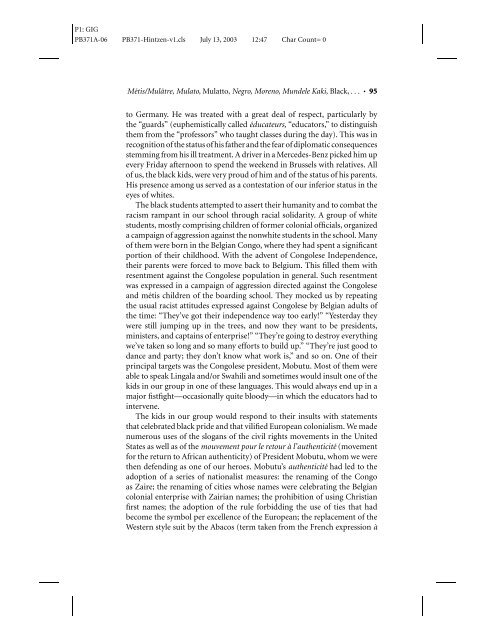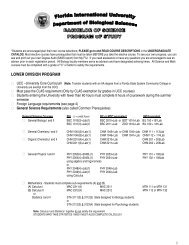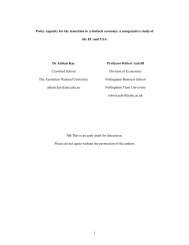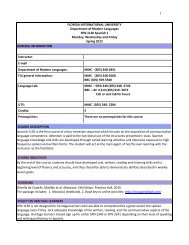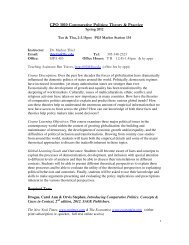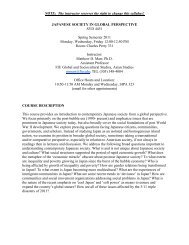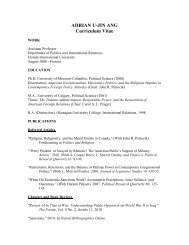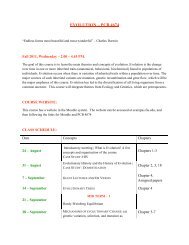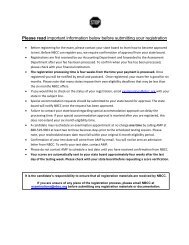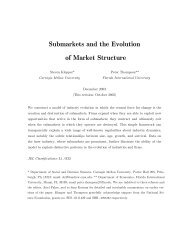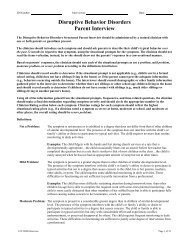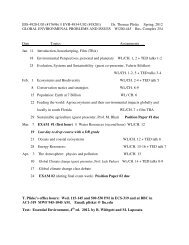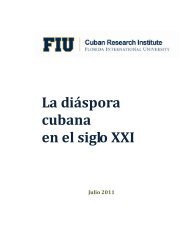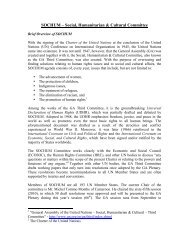Métis/Mulâtre, Mulato, Mulatto, Negro, Moreno, Mundele Kaki, Black
Métis/Mulâtre, Mulato, Mulatto, Negro, Moreno, Mundele Kaki, Black
Métis/Mulâtre, Mulato, Mulatto, Negro, Moreno, Mundele Kaki, Black
Create successful ePaper yourself
Turn your PDF publications into a flip-book with our unique Google optimized e-Paper software.
P1: GIG<br />
PB371A-06 PB371-Hintzen-v1.cls July 13, 2003 12:47 Char Count= 0<br />
<strong>Métis</strong>/<strong>Mulâtre</strong>, <strong>Mulato</strong>, <strong>Mulatto</strong>, <strong>Negro</strong>, <strong>Moreno</strong>, <strong>Mundele</strong> <strong>Kaki</strong>, <strong>Black</strong>, ... . 95<br />
to Germany. He was treated with a great deal of respect, particularly by<br />
the “guards” (euphemistically called éducateurs, “educators,” to distinguish<br />
them from the “professors” who taught classes during the day). This was in<br />
recognition of the status of his father and the fear of diplomatic consequences<br />
stemming from his ill treatment. A driver in a Mercedes-Benz picked him up<br />
every Friday afternoon to spend the weekend in Brussels with relatives. All<br />
of us, the black kids, were very proud of him and of the status of his parents.<br />
His presence among us served as a contestation of our inferior status in the<br />
eyes of whites.<br />
The black students attempted to assert their humanity and to combat the<br />
racism rampant in our school through racial solidarity. A group of white<br />
students, mostly comprising children of former colonial officials, organized<br />
a campaign of aggression against the nonwhite students in the school. Many<br />
of them were born in the Belgian Congo, where they had spent a significant<br />
portion of their childhood. With the advent of Congolese Independence,<br />
their parents were forced to move back to Belgium. This filled them with<br />
resentment against the Congolese population in general. Such resentment<br />
was expressed in a campaign of aggression directed against the Congolese<br />
and métis children of the boarding school. They mocked us by repeating<br />
the usual racist attitudes expressed against Congolese by Belgian adults of<br />
the time: “They’ve got their independence way too early!” “Yesterday they<br />
were still jumping up in the trees, and now they want to be presidents,<br />
ministers, and captains of enterprise!”“They’re going to destroy everything<br />
we’ve taken so long and so many efforts to build up.” “They’re just good to<br />
dance and party; they don’t know what work is,” and so on. One of their<br />
principal targets was the Congolese president, Mobutu. Most of them were<br />
able to speak Lingala and/or Swahili and sometimes would insult one of the<br />
kids in our group in one of these languages. This would always end up in a<br />
major fistfight—occasionally quite bloody—in which the educators had to<br />
intervene.<br />
The kids in our group would respond to their insults with statements<br />
that celebrated black pride and that vilified European colonialism. We made<br />
numerous uses of the slogans of the civil rights movements in the United<br />
States as well as of the mouvementpourleretouràl’authenticité (movement<br />
for the return to African authenticity) of President Mobutu, whom we were<br />
then defending as one of our heroes. Mobutu’s authenticité had led to the<br />
adoption of a series of nationalist measures: the renaming of the Congo<br />
as Zaire; the renaming of cities whose names were celebrating the Belgian<br />
colonial enterprise with Zairian names; the prohibition of using Christian<br />
first names; the adoption of the rule forbidding the use of ties that had<br />
become the symbol per excellence of the European; the replacement of the<br />
Western style suit by the Abacos (term taken from the French expression à


